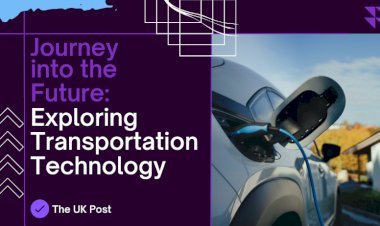How to Use AI for Business Optimization and Increased Productivity
Discover how AI for business can optimize operations, increase productivity, and enhance decision-making. Learn about AI-driven strategies for business success in 2025.

Artificial Intelligence (AI) is transforming business operations, making processes faster and more efficient. From automating repetitive tasks to improving data-driven decision-making, AI is helping companies optimize workflows and enhance productivity. According to a report by PwC, AI is expected to contribute $15.7 trillion to the global economy by 2030. Companies worldwide are rapidly adopting AI, with 72% of organizations reporting AI implementation in at least one area of their operations, according to McKinsey. In this article, we will explore various ways AI can be utilized to achieve these goals and drive business success.
Automating Repetitive Tasks

Businesses often spend considerable time on repetitive tasks such as data entry, scheduling, and business email responses. AI-powered automation tools can handle these tasks, allowing employees to focus on more strategic work.
-
AI chatbots manage customer inquiries 24/7, reducing response times and improving customer satisfaction.
-
Automated scheduling tools optimize meeting times and reminders without human intervention.
-
AI-driven data processing eliminates manual input errors and speeds up analysis.
According to AIPRM, a survey conducted among professionals in various industries found that 75% of workers were using AI in the workplace, with 90% reporting that AI helped them save time on tasks. The survey analyzed AI adoption rates across multiple job sectors, highlighting how automation and machine learning tools contributed to efficiency improvements.
Enhancing Customer Service

AI-powered solutions provide seamless customer interactions, ensuring better user experience and engagement. Companies use AI chatbots and virtual assistants to enhance customer service.
-
AI chatbots respond instantly to customer inquiries and resolve issues without human assistance.
-
Sentiment analysis tools evaluate customer feedback and improve service strategies.
-
AI-driven personalized recommendations improve user engagement and satisfaction.
According to Artsmart, 64% of businesses anticipated that AI would improve productivity, highlighting its potential to transform operations.
AI-Powered Data Analysis and Decision-Making

Businesses generate vast amounts of data daily. AI analyzes this data efficiently and helps companies make well-informed decisions.
-
AI-powered analytics platforms process complex data and provide insights in real time.
-
Predictive analytics tools forecast market trends and consumer behavior.
-
AI-based financial models enhance budgeting and investment decisions.
According to McKinsey, a global survey of executives across multiple industries found that 65% of organizations were regularly using generative AI in at least one business function. The data was collected through a combination of interviews and industry-wide analytics, providing insight into AI adoption trends across different sectors.
Optimizing Marketing Strategies

Marketing teams use AI to improve targeting, campaign performance, and customer engagement.
-
AI-driven algorithms analyze user behavior to create personalized marketing campaigns.
-
AI-based tools optimize ad placement, increasing conversion rates.
-
Automated social media tools schedule posts and track performance efficiently.
According to National University, 77% of companies are either using or exploring the use of AI in their businesses.
Supply Chain and Logistics Efficiency

AI plays a significant role in improving supply chain operations, ensuring faster and more cost-effective deliveries.
-
AI-powered demand forecasting predicts product needs, reducing stockouts and overstocking.
-
AI-driven route optimization enhances delivery efficiency and reduces fuel costs.
-
Smart inventory management automates reordering and stock tracking.
According to International Data Corporation (IDC), worldwide spending on technology to support AI is projected to reach $337 billion in 2025, reflecting the growing investment in AI technologies across industries.
AI in Human Resource Management

Companies integrate AI into HR processes to enhance hiring and workforce management.
-
AI-based recruitment tools screen resumes and identify top candidates.
-
Employee performance tracking tools provide data-driven feedback and insights.
-
AI-powered training platforms customize learning experiences for employees.
According to All About AI, 75% of companies reported using AI for talent acquisition in 2024.
AI in Financial Management

Financial institutions and businesses use AI to optimize financial management processes.
-
AI-powered fraud detection systems identify suspicious transactions in real time.
-
AI-driven accounting software automates bookkeeping and financial reporting.
-
Risk assessment tools use AI to evaluate investment opportunities and business risks.
According to AI Index by Stanford, 42% of organizations reported cost reductions from implementing AI.
Enhancing Cybersecurity

AI strengthens cybersecurity by detecting threats, preventing attacks, and safeguarding business data.
-
AI-powered security systems monitor networks for suspicious activity.
-
AI-driven fraud detection algorithms prevent identity theft and data breaches.
-
Automated threat response tools mitigate cyber threats before they cause damage.
To further enhance online security when implementing AI solutions, businesses should download a reliable VPN to protect sensitive data and ensure secure connections.
Note: This suggestion is provided for informational purposes only and does not constitute an endorsement.
A VPN encrypts internet traffic, making it difficult for cybercriminals to intercept AI-driven transactions, confidential business communications, and sensitive customer information. Additionally, VPNs help mitigate risks associated with unsecured networks, ensuring that AI-powered tools operate within a protected digital environment.
According to McKinsey, 72% of companies reported using AI in at least one area of their operations in 2024.
Additionally, a PwC survey found that 49% of technology leaders said AI was “fully integrated” into their companies’ core business strategy.
These statistics underscore the transformative impact of AI on business operations and its critical role in driving innovation and efficiency across industries. Businesses looking to implement AI solutions effectively should start by assessing their operational needs, investing in the right AI-driven tools, and staying informed about emerging trends. By doing so, they can ensure sustainable growth, enhanced productivity, and a competitive edge in their industry. According to Sales Mind AI, AI adoption is set to further increase as businesses continue to invest in emerging technologies.
FAQs
1. How can AI improve business efficiency?
AI automates repetitive tasks, enhances decision-making through data analysis, and streamlines operations, reducing time and cost inefficiencies.
2. What industries benefit the most from AI?
Industries such as healthcare, finance, retail, logistics, and manufacturing see significant benefits from AI-driven solutions.
3. Is AI expensive for small businesses?
While AI implementation costs can vary, many affordable AI tools are available for small businesses to improve operations and productivity.
4. How does AI enhance cybersecurity?
AI detects and prevents cyber threats, encrypts sensitive data, and provides automated threat response mechanisms.
5. What is the future of AI in business?
AI will continue to evolve, offering more advanced automation, better predictive analytics, and deeper integration into business strategies.

















